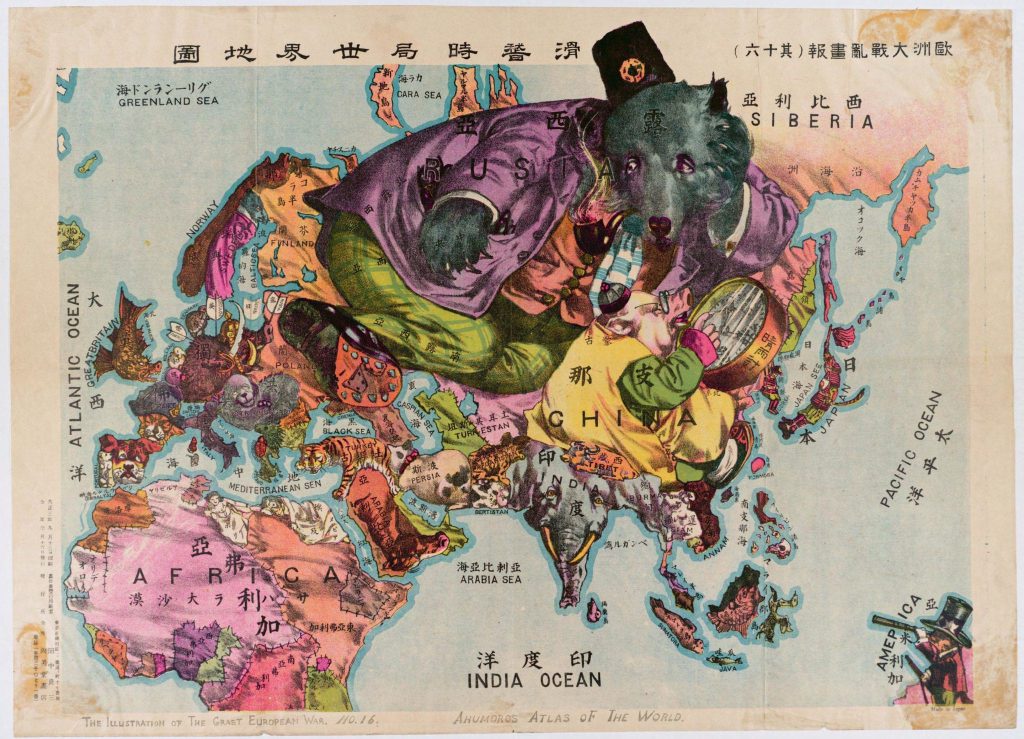
Russia Not America’s Enemy: A Reality, Not a Myth
Updated Aug 2023
In the complex world of international relations, it’s easy to fall into the trap of oversimplification, painting nations as friends or foes. However, the reality is far more nuanced. This is particularly true regarding the relationship between the United States and Russia, two global powers with a long and intricate history. While there have been periods of tension and conflict, it’s crucial to understand that Russia is not inherently America’s enemy.
Firstly, it’s essential to recognize that both nations share common interests in various global issues. For instance, they have cooperated in the past on nuclear disarmament matters. The New START treaty, signed in 2010 and extended in 2021, is a testament to their mutual commitment to nuclear arms reduction. This agreement has led to verifiable limits on strategic nuclear weapons, enhancing global security.
Secondly, the two countries have also found common ground in the fight against terrorism. Post 9/11, Russia was among the first to offer support to the U.S., and both nations have since collaborated in intelligence sharing and counter-terrorism efforts. This cooperation underscores the potential for constructive engagement when faced with shared threats.
Moreover, in space exploration, the U.S. and Russia have a long history of collaboration. The International Space Station (ISS) program is a shining example of this partnership. Despite political differences on Earth, American astronauts and Russian cosmonauts have worked side by side in space for over two decades, contributing to scientific advancement and fostering mutual understanding.
However, this is not to dismiss the significant disagreements and conflicts between the U.S. and Russia. Cyber warfare, human rights, and territorial disputes have strained relations. Yet, these challenges should be viewed as obstacles to overcome rather than as evidence of inherent enmity.
In conclusion, painting Russia as America’s enemy oversimplifies a complex relationship. While there are undeniable conflicts and tensions, there are also areas of cooperation and shared interests. It’s essential to move beyond Cold War-era thinking and engage with Russia in a constructive dialogue, addressing disagreements while building on common ground. This approach not only serves the interests of both nations but also contributes to global stability and peace.
What are they doing if nearly 40% of Americans aren’t working?
The most recent job statistics tell a tale that’s far from uplifting. Officially, unemployment has held steady at 5.1%, a figure that seems relatively stable. However, the real story lies in the fact that only 59.2% of Americans are currently employed. The key distinction here is that the unemployment rate solely accounts for individuals actively seeking employment. To gain a more accurate understanding of the economy, one must turn to the labour force participation rate.
The labour force participation rate encompasses a broader spectrum, including those who have given up on job hunting, those who choose not to work, and those unable to work. Alarmingly, this rate plummeted to 62.4% during the last quarter. What’s concerning is that this decline in labour force participation has persisted since the onset of the recession and even years into the recovery, there are no signs of a reversal. The rate has not sunk this low since 1977, when it was commonplace for women to be homemakers.
The dwindling labour force participation rate has sparked discussions among Federal Reserve observers, raising doubts about the prudence of an interest rate hike in December. As revealed by these numbers, the economic landscape suggests a deeper and more complex narrative than what meets the eye. Full Story
The Complex Reality of Economic Recovery: Unveiling the Illusions
The above story has a good headline but does not answer it. It appears that many factors are contributing to the current economic situation. Some individuals seem to be patiently awaiting a transformative event, possibly a form of financial relief for the general populace. Many find themselves involved in the underground economy or are engaged in cash-based employment arrangements, while a significant portion has unfortunately lost faith in the system altogether.
Among those who have given up, a portion relies on welfare programs and various government assistance initiatives, utilizing them to sustain their livelihoods. Additionally, some embark on higher education journeys but, regrettably, misuse their student loans, diverting funds towards unnecessary purchases to impress individuals they may not even hold in high regard.
Upon closer examination, it becomes evident that the overall outlook remains less than optimistic. In many ways, the much-touted economic recovery seems to be a falsehood perpetuated among the masses. Surprisingly, despite sporadic expressions of discontent, there appears to be a general lack of widespread resistance.
The influx of “hot money” into financial markets creates a deceptive facade, masking the underlying deterioration of the economy. This historical pattern of the masses being pawns rather than victors remains largely unchanged over time. As the prevailing strategy seems to be inundating the economy with even greater liquidity, it becomes imperative for individuals to adopt a perspective where significant market pullbacks are viewed as lucrative buying opportunities.
The intricate web of economic dynamics unravels to reveal a multifaceted reality. The overarching message is clear: in a world where appearances can be deceiving, strategic thinking and prudent investment choices become paramount in navigating these uncertain times.
Russia Not America’s Enemy: Fear is
Real enemies pose a genuine threat to any nation, but the dangers posed by imagined enemies can be even more insidious. They drain valuable resources, incite unnecessary conflicts, and divert attention from the actual challenges at hand. Regrettably, the United States has crafted such a fictional adversary by portraying Russia as an enemy.
During a brief interlude in the 1990s, it seemed as if Russia had relinquished control over its security apparatus. Stunned and immobilized by the disintegration of the Soviet Union, Russians found themselves in a position where they could do little but watch as NATO, once considered a formidable foe, established bases right at their borders. In the corridors of Washington, a prevailing belief emerged that the United States had permanently shattered Russian power. Fuelled by this optimism, there was a misguided notion that the U.S. could indefinitely maintain a stranglehold over Russia.
The consequences of this imagined enmity are profound and extend far beyond mere perceptions. They influence policies, resource allocation, and geopolitical posturing, often leading to unnecessary tensions. Nations must recognize the distinction between real and perceived threats, as the latter can have far-reaching and detrimental consequences on the global stage.
The Danger of Unwavering Cold War Mentality in U.S.-Russia Relations
It’s crucial to recognize the perilous consequences of maintaining an unyielding Cold War mentality in U.S.-Russia relations. In the aftermath of the Cold War, by pressing their advantage too forcefully, the United States inadvertently fueled a nationalist reaction in Russia. President Vladimir Putin, who embodies this sentiment, enjoys popularity in Russia because many believe he is striving to reclaim some of the nation’s lost power. Conversely, in Washington, Putin is often demonized. This stark portrayal of Russia as an enemy has peculiarly found comfort among Americans, providing a sense of reassurance that the world remains unchanged and that there’s no need to alter existing policies.
This nostalgia for hostility toward Russia not only resurrects the anti-Moscow policies of the Cold War era but also revives the belligerent rhetoric that accompanied them. Notably, this summer witnessed an extreme exaggeration of Russia’s power, not solely from Cold War veterans like John McCain or Hillary Clinton but from General Joseph Dunford, the new chairman of the Joint Chiefs of Staff. During his Senate confirmation hearing in July, Dunford went as far as to suggest that Russia “could pose an existential threat to the United States” and advocated for sending aid to Ukrainians willing to confront Russia.
Such statements are perplexing on multiple levels. Firstly, Russia is fundamentally weakened, grappling with economic challenges. It is far from having the capability to compete with, let alone threaten, the United States. Secondly, Russia, surrounded by American military bases, faces Western threats daily and witnesses NATO military presence on its borders, thus fueling concerns about its own security. Thirdly, this unrelenting pushback against Russia has unintended consequences, pushing it closer to China. This encourages a burgeoning partnership that could evolve into a genuine challenge to American power.
In conclusion, clinging to a Cold War mindset in the face of evolving global dynamics poses risks beyond rhetoric and policy. It’s imperative to acknowledge the changing world order and reassess diplomatic relations accordingly to ensure a more stable and secure future.
Russia Not America’s Enemy: Perils of Alienating Russia:
There exists a fundamental reason why transforming Russia into an adversary is a misguided path, one that extends beyond immediate concerns. The stability of Europe hinges on the inclusion of all its major countries in the governance process, coupled with a genuine consideration of each nation’s security interests.
This timeless truth was recognized by the visionary Prince Metternich two centuries ago. As the foreign minister of the Austrian Empire and the architect behind the Congress of Vienna, tasked with rebuilding Europe following nearly a quarter-century of conflict, Metternich confronted a Europe in turmoil, with France cast as the villain. French forces led by Napoleon had wreaked havoc across the continent, fueling widespread and intense anti-French sentiment. Delegates at the Congress of Vienna clamoured for severe punishment for the troublemaker. Yet, Metternich stood his ground and persuaded fellow leaders that, for the sake of future stability, they must reintegrate the miscreant into the European family. This decision ultimately ushered in an era of peace that lasted for generations.
While emotions might argue that Russia is a disruptive force due to its non-conformity with Western standards and necessitates confrontation and punishment, reason dictates a different response. Russia is a legitimate global power, and expecting it to adhere to Western directives unquestioningly is unrealistic. Furthermore, Russia will not remain passive when the United States actively promotes anti-Russian movements on its borders.
The lesson from history is clear: the path to lasting stability lies in recognizing the legitimacy and interests of all major players, even those who may challenge prevailing norms. Only through dialogue, diplomacy, and an inclusive approach can we hope to achieve a Europe and a world that are truly secure and peaceful.
Russia: A Pragmatic Assessment Amidst Tensions
This story offers a valuable perspective on the ongoing situation with Russia, underlining the importance of refraining from viewing Russia as an adversary. The commentary sheds light on Russia’s notable strengths, including its successful economic diversification, moving away from heavy reliance on oil and gas revenues, and its reservoir of skilled and inventive citizens.
It draws a compelling contrast between Russia’s innovation strategy, which leans on its abundant resources and intellectual prowess, and the United States, which attracts talent from around the world. The article also acknowledges Russia’s impressive military capabilities, all while spending a fraction of what the United States allocates for defense. It underscores Russia’s historical resilience within its vast territory.
This nuanced perspective encourages a more balanced and pragmatic outlook on Russia, recognizing both its strengths and its unique position on the global stage.
Originally published on December 6, 2015, this article has been periodically updated over the years to provide readers with the most current information. The latest update was conducted in June 2023, ensuring that the content remains relevant and up-to-date.
Other stories of interest:

Clear Proof Millennials Are Dumbest Generation

Third Wave Feminism Criticism: Valid Points Amidst the Debate

Investor Sentiment in the Stock Market: Maximizing Its Use

Mastering the Art of Retirement: How to Start Saving for Retirement at 45 with Grace and Style

Third Wave Feminism is Toxic: Its Impact on America

What is the Average Student Loan Debt in the US? Understanding the Crisis

Student Debt Crisis Solutions: Halting the Madness is Essential

Financial Freedom Reverse Mortgage: A Sophisticated Strategy for a Comfortable Retirement

Early Retirement Extreme: A Philosophical and Practical Guide to Financial Independence

Student Loan Refinance: A Smart Move Towards Financial Freedom – Poise in Debt Reduction

How to Lose Money: The Dangers of Ignoring Market Trends and Psychology in Stock Investing

How much has the stock market gone up in 2023? -A Refined Analysis

Maximizing Gains: Mastering Market Sentiment Indicators

How to Achieve Financial Goals: The Midas Touch for Your Financial Dreams

Sophisticated Strategies for US Dollar Index Investing: Elevate Your Forex Game



Too many people think that Russia is weak. But yet it’s creating it’s own ways to survive on it’s own, without anyone else. Russia and their allies will burn the U.S, alongside Canada. America will be doomed.
I agree. What most fail to understand is that Russia is the only nation capable of standing up to the US and it is able to do so with a military budget that is 10 times smaller than that of the U.S. This speaks volumes in terms of their brain power and innovative skills. Right now Putin wants to try to make Russia the biggest supplier of organic foods in the world. Russia has a lot of other industries that are emerging that could eventually drop its reliance on oil. It’s not like the crazy Saudi’s who only have camels and oil. Without the oil they are nothing but camel traders.